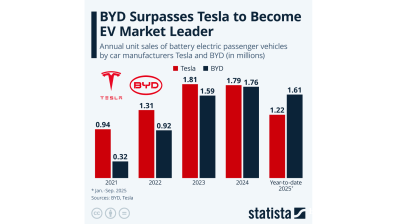Slovenia ranks first in Central, Eastern and Southeast Europe and is placed in 13th position globally according to the first Social Mobility Report published by the World Economic Forum (WEF) on January 21.
The Global Social Mobility Index 2020 was released during the WEF annual meeting at Davos. Releasing the study, the WEF talked of the lost economic growth opportunities associated with poor social mobility.
“The headline finding of the report is that most economies are failing to provide the conditions in which their citizens can thrive, often by a large margin. As a result, an individual’s opportunities in life remain tethered to their socio-economic status at birth, entrenching historical inequalities,” said the WEF in a statement.
“This is a major problem not only for the individual, but also society and the economy. Human capital is the driving force of economic growth. As a result, anything that undermines the best allocation of talent and impedes the accumulation of human capital may significantly hamper growth. Poor social mobility coupled with inequality of opportunity underpin these frictions, suggesting that if the level of social mobility were increased, it could act as a lever to economic growth.”
According to the index, which ranks 82 countries worldwide, Slovenia had 76.4 points on average. The countries above it on the index were exclusively western and northern European countries.
Slovenia posted relatively high scores in providing health mobility (posting 88 points, and a global ranking of 20th), fair wage distribution (4th place globally with 79 points) and social protection (ranked 11th with 79 points), performing higher than Canada, Japan and Australia.
The first on the list is Denmark, followed by Norway and Finland.
The only other country from emerging Europe to make it into the top 20 states was the Czech Republic, at 19th place with a score of 74.8.
A number of others from the region are clustered around the middle of the ranking, most performing less well than their peers from western Europe, but outperforming emerging economies from Latin America, Africa and South Asia.
Among the Central European economies, Estonia is at 23rd place, Lithuania 25th (just above the US) and Poland 30th.
Kazakhstan is in 38th place, and Russia 39th.
Among the Southeast European countries, Croatia was the second ranked after Slovenia, at 36th place with 66.7 points. Bulgaria, Serbia and Romania ranked 40th, 41st and 42nd respectively. Moldova occupied 49th position while Albania has been placed on bottom among countries in the region at 54th.
The WEF report identifies a trend towards deepening inequalities since the onset of the Fourth Industrial Revolution. The report refers to “huge wage disparities”, which have “grown exponentially” since the 1970s, which have often been blamed on globalisation and technology.
“The index clearly shows that the former has increased inequalities within countries by transferring low-skilled jobs in high-productivity sectors in high-income economies to lower-income counterparts. This has effectively penalised workers in specific locations and types of job,” says the report.
“The Fourth Industrial Revolution, and with it, continuing and future disruption to labour markets, will likely compound differences in social mobility for those countries unprepared to take advantage of new opportunities,” it adds.
Data

BYD surpasses Tesla to become EV market leader – Statista
While Chinese manufacturer BYD already pulled ahead of Tesla in production volume last year, with 1,777,965 battery electric vehicles (BEV) produced in 2024 (4,500 more than Tesla), the American manufacturer remained ahead in sales.

Estonia has the world’s most competitive tax systems for the 11th year in a row – STATISTA
The Tax Foundation has released its International Tax Competitiveness Index which highlights the most competitive tax rates in different countries around the world. For the 11th consecutive year, Estonia had the highest score in the index.

EU rare earth supply dominated by China and Russia - Eurostat
The European Union remains heavily dependent on China and Russia for rare earth imports, with nearly three-quarters of its supply sourced from the two countries in 2024, according to data published by Eurostat and reported by Statista.

Turkey's central bank remains cautious, delivers 100bp rate cut
Decision comes on eve of next hearing in trial that could dislodge leadership of opposition CHP party.




